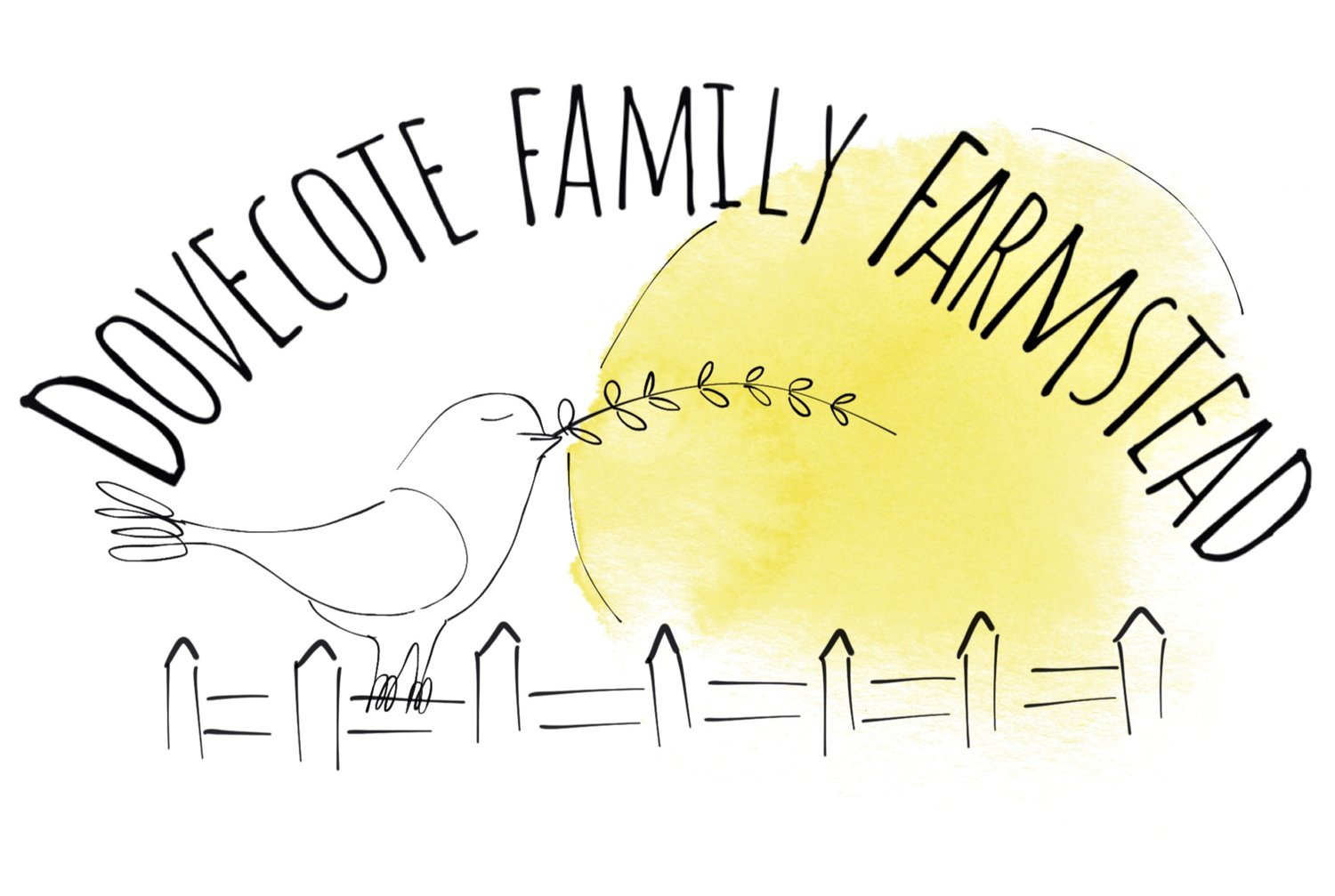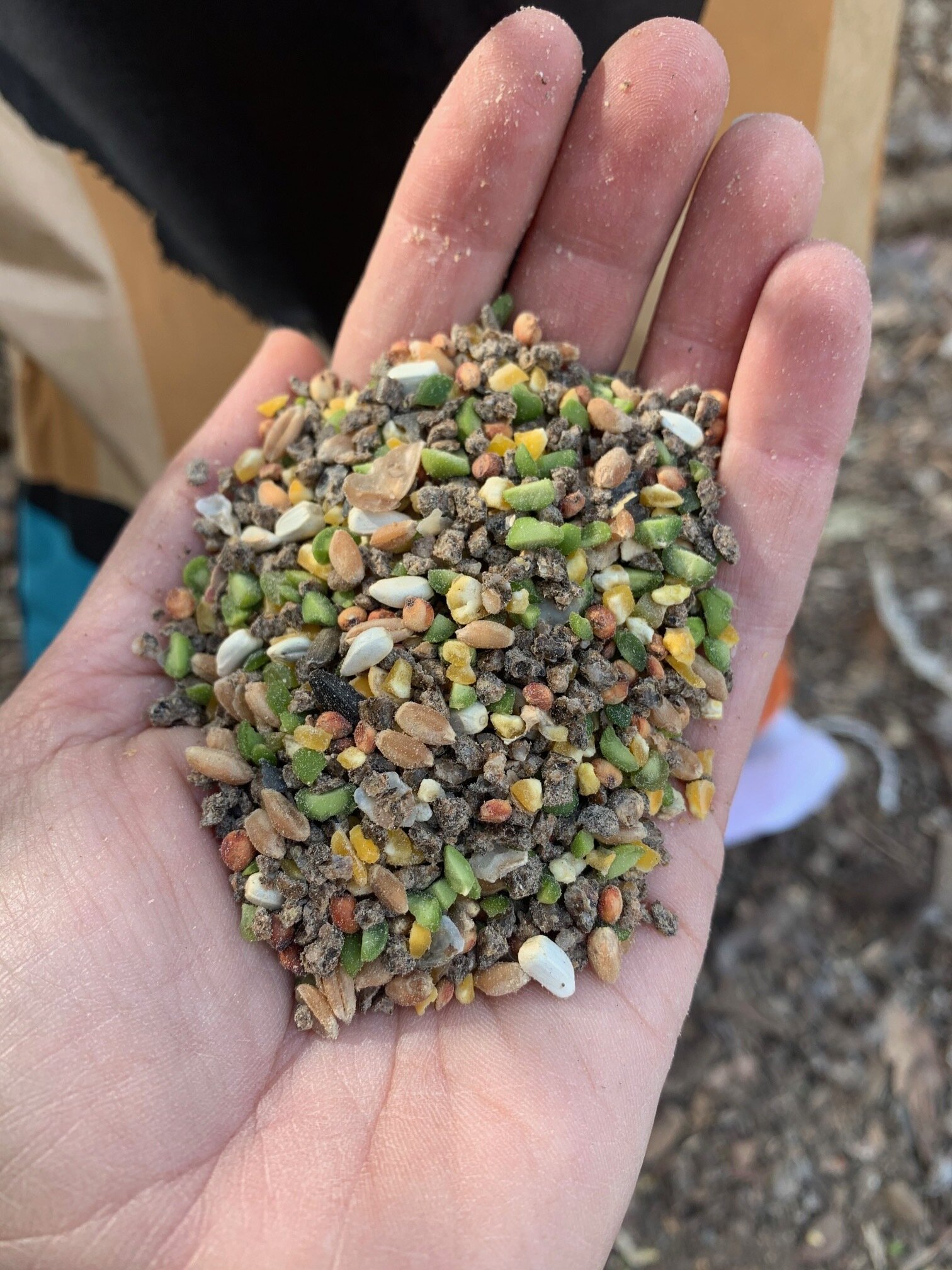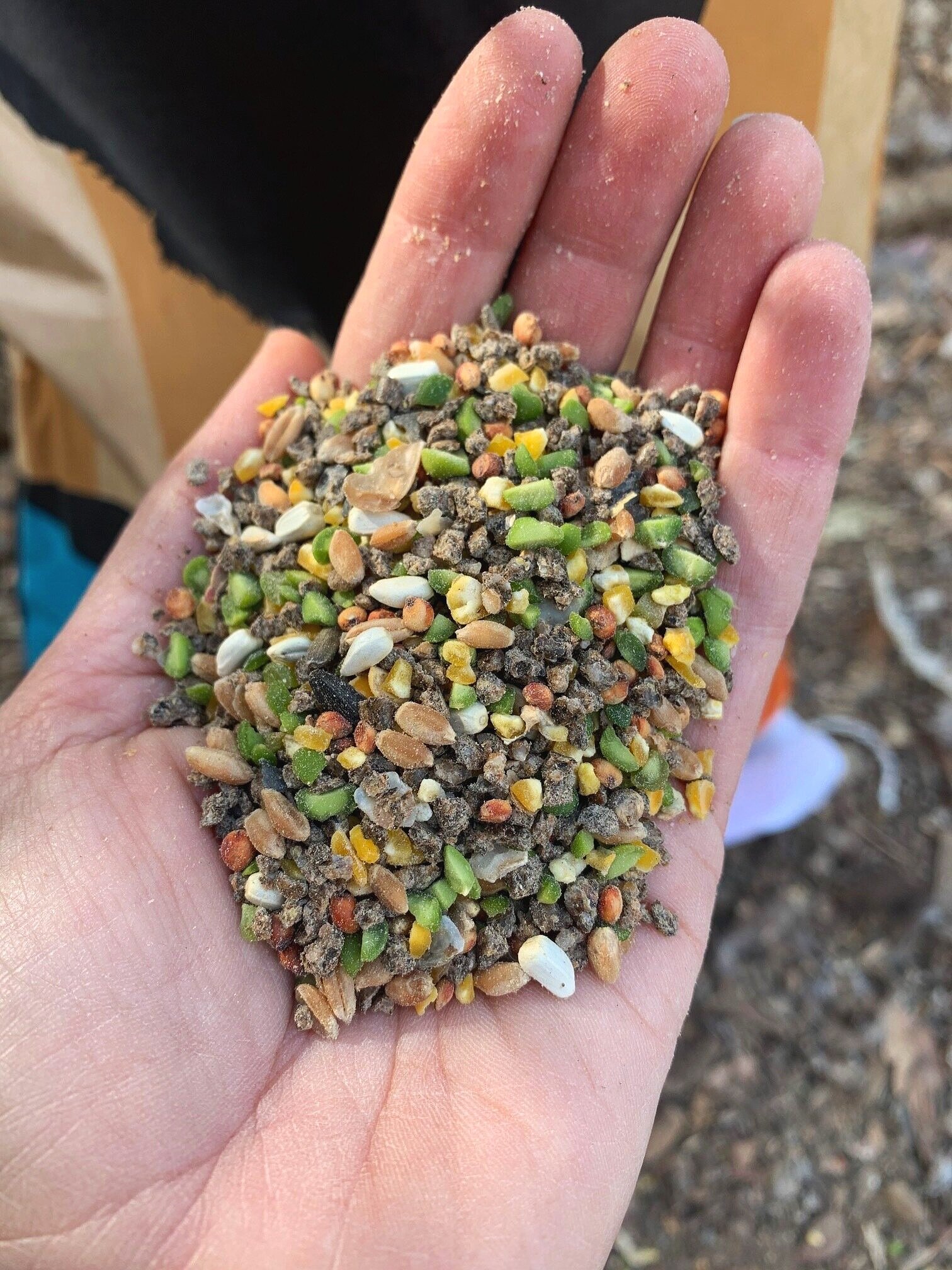What to feed your chickens
What chickens eat largely depends on how old they are and whether you are raising them organically or not. There is a lot of information out there on what to feed your chickens, but I'm just going to share what I feed my chickens and why I chose to do that.
This is the feed we use and some scratch that my clucks love.
What chickens eat largely depends on how old they are and whether you are raising them organically or not. There is a lot of information out there on what to feed your chickens, but I'm just going to share what I feed my chickens and why I chose to do that. I am not affiliated with any of these companies, just have used and been happy with their products.
When you first get your baby chicks, they will need what is called a starter feed. This feed is going to have a higher percentage of protein and can be either medicated or non-medicated. What's the difference you ask? Well, medicated feed includes one added ingredient that prevents your baby chicks from contracting a parasitic organism called coccidiosis, allowing them to build a natural immunity to it for later on in life. If you are raising your babies where they have ANY access to the outdoors where either wild birds are, or chickens have been raised previously, it is nearly a guarantee that coccidiosis is present in their environment and your chicks will be exposed to it. In that case, medicated starter would be best. If you are raising them indoors with no exposure, you can do non-medicated but they will still be exposed once moved outdoors and you may run the risk of them getting sick later and needing antibiotics to treat it. Personally, I start all my laying birds on medicated feed then switch them to organic after. The medicated feed only has a 2 week withdraw period so it's no longer in their system by the time they start laying. (For our meat birds, I feed them organic from the start and have them sprayed for coccidiosis at the hatchery before they arrive.) Starter feed needs to be fed to your babies for 6-8 weeks.
*Also, another bit of information worth noting is where you get your baby chicks from. If ordering directly from a hatchery, you can have them sprayed with medication that does the same thing as feeding medicated feed and then give them organic/non-medicated feed once you get them home. If you get your chicks from the local feed store, they will NOT be medicated or vaccinated and you will need to decide what you'll do.
After the first 6-8 weeks, you want to transition the birds to a grower feed. This is where I transition my birds to organic/non-GMO feed. I have also chosen, for the most part, to use corn and soy free feeds. I add corn on occasion in the colder months of Fall and Winter only, since it has a warming effect on the birds. I also always make sure the corn I use is non-GMO. I try to avoid soy altogether. If you're curious which brands I use, I have chosen both Bar Ale and Modesto Milling for our feeds. Keep them on this feed from 8 weeks until they are between 16-20 weeks old. (Fun fact for you: Juvenile chickens are considered pullets if they are a female under 1 year old and cockerels for a male under a year. After that they are a hen and a rooster.)
This is what I have started giving my birds this Fall and will continue through the Winter. It’s Bar Ale’s Ultimate Layer Pack. Beautiful feed loaded with goodies for your birds!
Lastly, you will put your chickens on a layer feed. You can choose a pellet or crumble, whatever you or your birds prefer. This feed will help support your hens as they begin to lay eggs and will provide the correct ratio of vitamins, minerals, fats, protein etc. that they need. This is the feed they will stay on for the remainder of their lives.
There are also many other things you can offer your chickens once they are pullets and older. These include leftover dinner scraps, anything you'd put in your compost, growing fodder for them, any grasses, bugs and other goodies they find while free-ranging, garden produce that was inedible for you etc. It really is fun and helpful how much these gals (and guys) can eat, which means less waste overall. A win-win! I'll write more about growing fodder for chickens in another post soon. So if you're interested, keep an eye out for it. Also, you may want to consider giving your girls scratch. This is usually a whole grain mix, cracked corn or something along those lines. I usually stick to mostly whole grains and if I do add cracked corn, I choose non-GMO and do so only in the cooler months since it has a warming effect on the birds.
I hope this information was helpful for you. Please feel free to add comments or ask questions. I’d love to hear from you!
Blessings,
Tove



